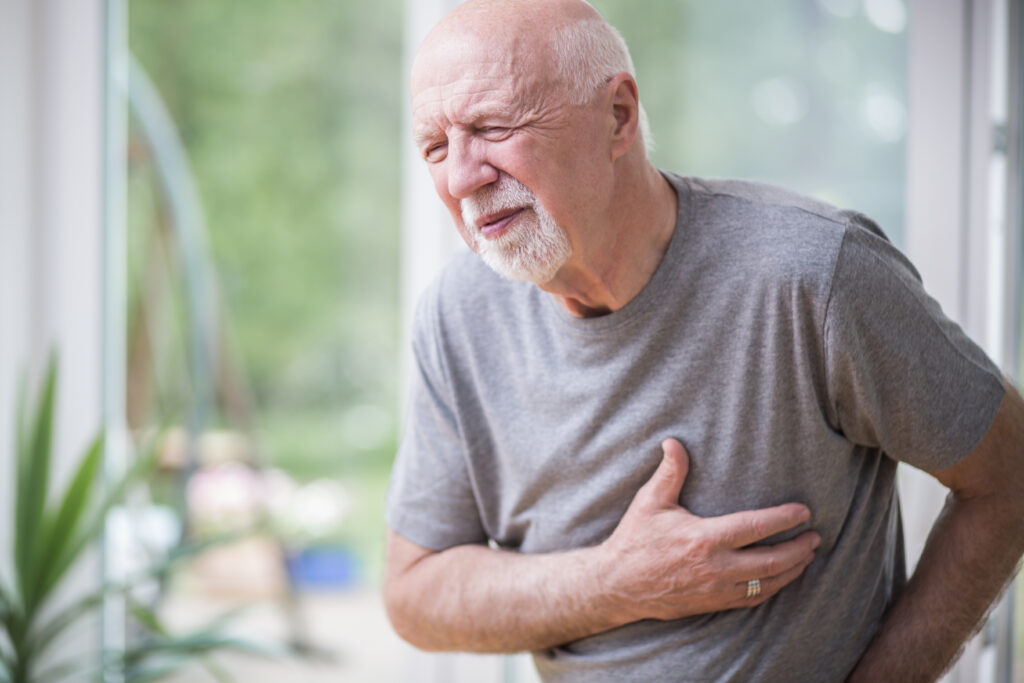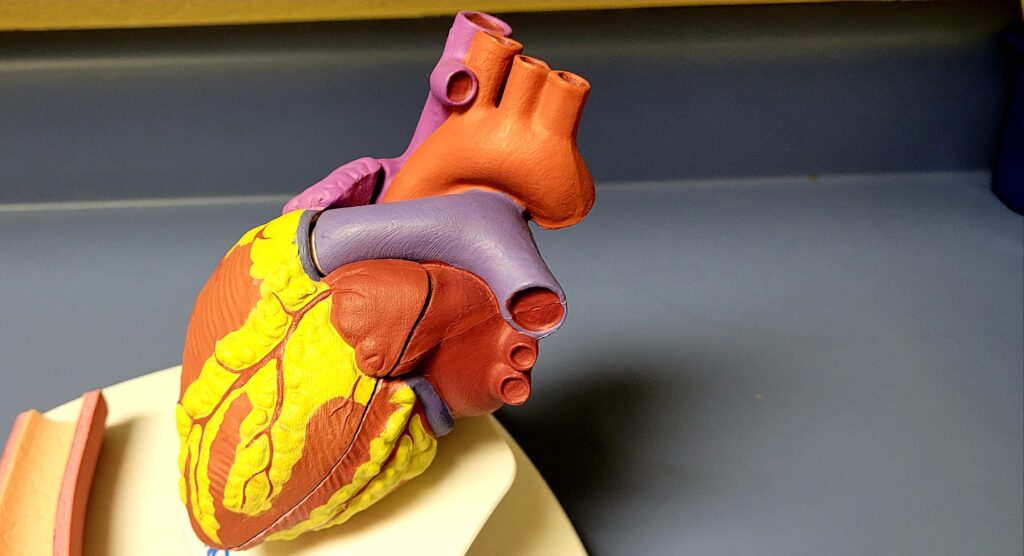Warning Signs and Early Detection of Heart Disease
Feb 02, 2022
Heart disease is the leading cause of death in the United States, causing about 1 in 4 deaths. The term “heart disease” refers to several types of heart conditions. In the United States, the most common type of heart disease is coronary artery disease (CAD), which can lead to a heart attack.
Coronary artery disease, arrhythmia, heart valve disease, and heart failure are the four most common types of heart disease. Understanding the warning signs for heart disease and heart attack signs is extremely important. Today, we will look at heart disease symptoms, causes of heart disease, warning signs, preventing strokes, and preventing heart disease.
The term “heart disease” describes a range of conditions that affect your heart. Heart diseases include:
- Blood vessel disease, such as coronary artery disease
- Heart rhythm problems (arrhythmias)
- Heart defects you’re born with (congenital heart defects)
- Heart valve disease
- Disease of the heart muscle
- Heart infection
Heart Disease Early Detection
Heart Disease Symptoms
A buildup of fatty plaques in your arteries, or atherosclerosis (ath-ur-o-skluh-ROE-sis) can damage your blood vessels and heart. Plaque buildup causes narrowed or blocked blood vessels that can lead to a heart attack, chest pain (angina), or stroke.
Coronary artery disease symptoms may be different for men and women. For instance, men are more likely to have chest pain. Women are more likely to have other signs and symptoms along with chest discomfort, such as shortness of breath, nausea, and extreme fatigue.
Heart disease symptoms can include
- Chest pain
- Chest tightness
- Chest pressure
- Chest discomfort (angina)
- Shortness of breath
- Pain, numbness, weakness or coldness in your legs or arms if the blood vessels in those parts of your body are narrowed.

What Are Causes of Heart Disease
Major Causes of Heart Disease
There are different causes for heart disease due to the range of conditions. Understanding the causes of heart disease can help with heart disease early detection.
Heart Disease Symptoms Caused by Abnormal Heartbeats (Heart Arrhythmias)
Heart disease caused by abnormal heartbeats (or arrhythmias) is when your heart may beat too quickly, too slowly, or irregularly. Heart arrhythmia signs and symptoms can include:
- Fluttering in your chest
- Racing heartbeat (tachycardia)
- Slow heartbeat (bradycardia)
- Chest pain or discomfort
- Shortness of breath
- Lightheadedness
- Dizziness
- Fainting (syncope) or near fainting
Heart Disease Symptoms Caused by Heart Defects
Serious heart defects that you’re born with (congenital heart defects) usually are noticed soon after birth. Heart defect signs and symptoms in children could include:
- Pale gray or blue skin color (cyanosis)
- Swelling in the legs, abdomen or areas around the eyes
- In an infant, shortness of breath during feedings, leading to poor weight gain
Less serious congenital heart defects are often not diagnosed until later in childhood or during adulthood. Signs and symptoms of congenital heart defects that usually aren’t immediately life-threatening include:
- Easily getting short of breath during exercise or activity
- Easily tiring during exercise or activity
- Swelling in the hands, ankles or feet
Heart Disease Symptoms Caused by Diseased Heart Muscle (Cardiomyopathy)
In the early stages of cardiomyopathy, you may have no symptoms. As the condition worsens, symptoms may include:
- Breathlessness with activity or at rest
- Swelling of the legs, ankles and feet
- Fatigue
- Irregular heartbeats that feel rapid, pounding or fluttering
- Dizziness, lightheadedness and fainting
Heart Disease Symptoms Caused by Heart Infection
Endocarditis is an infection that affects the inner lining of your heart chambers and heart valves (endocardium). Heart infection signs and symptoms can include:
- Fever
- Shortness of breath
- Weakness or fatigue
- Swelling in your legs or abdomen
- Changes in your heart rhythm
- Dry or persistent cough
- Skin rashes or unusual spots
Heart Disease Symptoms Caused by Heart Valve Problems (Valvular Heart Disease)
The heart has four valves — the aortic, mitral, pulmonary, and tricuspid valves — that open and close to direct blood flow through your heart. Many things can damage your heart valves, leading to narrowing (stenosis), leaking (regurgitation or insufficiency), or improper closing (prolapse).
Depending on which valve isn’t working properly, valvular heart disease signs and symptoms generally include:
- Fatigue
- Shortness of breath
- Irregular heartbeat
- Swollen feet or ankles
- Chest pain
- Fainting (syncope)

Preventing Heart Attack & Preventing Stroke
Preventing Heart Attack and Stroke
There are definitely risk factors with heart disease and strokes. Obesity, unhealthy diet, physical inactivity, smoking, and diabetes are all common risks associated with heart disease. Following our tips below can help you in preventing heart disease and living a healthier and longer life.
Eat a Healthy Diet
Center your eating plan around vegetables, fruits, whole grains, legumes, nuts, plant-based proteins, lean animal proteins, and fish. Make smart choices like limiting refined carbohydrates, processed meats, and sweetened drinks. Use the nutrition facts label on packaged foods to cut back on sodium, added sugars, and saturated fats. Avoid trans fat.
Be Physically Active
It is important to stay physically active and exercise – it’s one of the best ways to stay healthy, prevent disease, and age well. Adults should get at least 150 minutes of moderate-intensity aerobic activity or 75 minutes of vigorous activity each week. If you’re already active, you can increase your intensity for even more benefits. If you’re not active now, get started by simply sitting less and moving more. Consider walking to places that are short distances away instead of driving, taking the stairs instead of the elevator, taking a walk around the block, riding a bike, or engaging in other active lifestyle changes that encourage you to move more.
Watch Your Weight
Work with your healthcare provider to find a healthy weight for you to maintain. It is important to lose weight if you’re overweight or obese. Start by eating fewer calories and moving more. You can check your body mass index (BMI) with simple apps on your phone or by working with your healthcare provider. If you need help, talk to your health care team about a weight loss plan.
Live Tobacco-free
If you don’t smoke, vape, or use tobacco products, don’t ever start. There’s no such thing as a safe tobacco product. If quitting smoking or tobacco is a challenge for you, ask your health care team for help to kick the habit using proven methods. Don’t just swap one tobacco source for another. And try to avoid secondhand smoke, too!
Manage Conditions
If you have high blood pressure (hypertension), high cholesterol, high blood sugar, diabetes, or other conditions that put you at greater risk, it’s very important to work with your health care team and make lifestyle changes. Many conditions can be prevented or managed by eating better, getting active, losing weight, and quitting tobacco.
Take Your Medicine
If you have a health condition, your doctor or medical provider may prescribe statins or other medications to help control cholesterol, blood sugar, and blood pressure. Take all medications as directed. But don’t take aspirin as a preventive measure unless your doctor tells you to. If you’ve never had a heart attack or stroke, daily aspirin may not help you at all and could cause problems including the risk of bleeding. If you’ve had a heart attack or stroke, your doctor may want you to take a low dose of aspirin to reduce your risk of having another.

Undersatanding Heart Attack Warning Signs & Stroke Warning Signs
What To Do If You Have Heart Disease Symptoms Or Are At Risk
Seek immediate emergency medical care if you have these heart disease signs and symptoms:
- Chest pain
- Shortness of breath
- Fainting
Always call 911 or emergency medical help if you think you might be having a heart attack or stroke.
Heart disease is easier to treat when detected early, so talk to your doctor about your concerns regarding your heart health. If you’re concerned about developing heart disease, talk to your doctor about steps you can take to reduce your heart disease risk. This is especially important if you have a family history of heart disease.
If you think you may have heart disease, based on new signs or symptoms you’re having, make an appointment to see your doctor or medical provider. At HealthCore Clinic, our team-based, integrated care method means that we see your medical needs head to toe—all systems of your body are connected, and so is our patient-centered approach! If you are searching for heart doctors in Wichita, HealthCore Clinic can help.
HealthCore Clinic welcomes patients of all ages and stages of life, giving you continuity and convenience. If you are searching for “heart check up Wichita,” call or click today to schedule an appointment.